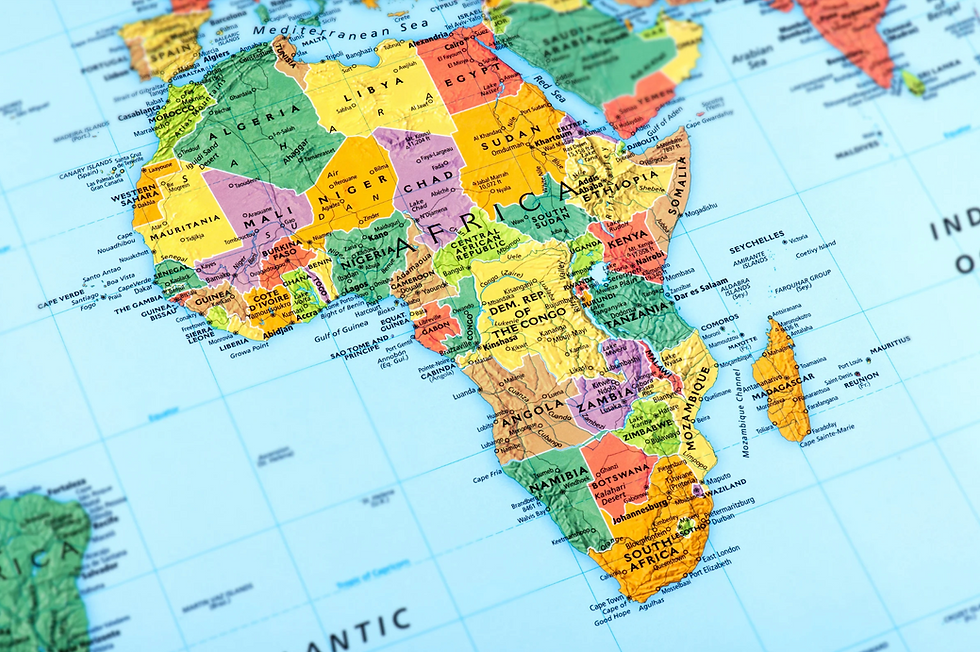The Secret to Selling ¥20 Million / Month on Douyin
- michael5923
- Feb 15, 2024
- 3 min read
2023 was a lackluster year for those expecting China's outbound travel market to simply resume where it had paused in December 2019. Outbound travel was dominated by the wealthy, and more often than not, limited to short-haul destinations. Yet with an agile, visionary approach to social media trends, Chinese travel agency Kedou Travel was able to not only dominate the attention space on Douyin around UAE travel, but also managed to turn over RMB 20 million through its Europe products alone. Changbin Liu, general manager of Kedou Travel, shed some light on how they managed to do well in 2023's slow recovery.

When the first batch of outbound travel whitelist destinations was announced in early 2023, Southeast Asian wholesalers were fully prepped for a tear of revenge travel — yet various market factors led to a recovery far below expectations. At the same time, however, Qingdao-Dubai charter flights operated by Kedou Travel were doing exceptional numbers. "When the first list of destinations released in February last year included the UAE, we started to secure seats from Qingdao to Dubai for March. In fact, we started to organize groups in the form of temporary group tickets at that time. The market demand was huge, so we took decisive action and secured all group flight seats. So even though it was a quick win, we could make decent money and get the company operating normally again," says Liu.
Kedou Travel was also an early mover in Douyin sales. "Our UAE products held as much as 70% of attention share on Douyin, and we hit a revenue record. When Europe opened up in May last year, we moved fast to hold most of the attention share in that space, which we still hold to date. Our team at Kedou Travel has also designed exclusive products and customer-exclusive benefits for Douyin buyers, including incentive policies for influencers, which secures our European products a very firm position on Douyin. Currently, our European products have a stable monthly turnover of RMB 20 million."Liu adds: "The combination of Douyin and travel agencies is the trend of our times. And it's not only the tourism industry. The Douyin mass market is a shortcut for travel agencies to speak to a broad blue ocean of customers."

To survive in China's 2024 post-pandemic travel market, travel agencies must achieve the 'three transformations': "market segmentation, specialization, and perfection," according to Changbin Liu. "The word on the street is that there will never be product or price advantages again," he says. "These advantages are easy to replicate, but strong customer service culture cannot be replicated."
Even in China, most travel companies find it difficult to understand the consumption patterns of the post-90s and post-00s generations. "Before the epidemic, the main customer groups in the tourism industry we focused on were mainly families and the elderly," says Liu. As a result, wholesalers' attention has been shifting to online sales channels, which is a change largely brought about as part of the pandemic. As Liu sees it, younger groups are driving demand for "independent travel, semi-independent travel, individual customisation, and specialised services."
Looking at market research and travel companies' sentiments, outbound travel in 2023 was not for ordinary income groups, as the average price of travel rose significantly, seeing many travel agencies targeting high-end customer groups. Changbin Liu says that the rise and fall of the outbound travel market is closely tied to China's economic recovery. "Industries such as real estate, automobiles, tech and education have been hit hard, and employees of certain strategic enterprises and institutions have restrictions on any outbound travel. Also, higher costs at various links of the tourism value chain have led to high prices for group tours, and various factors have led to the outbound market not recovering as expected in 2023, still leaving a significant gap compared to 2019's numbers."

Liu believes that mass outbound tourism will accelerate industry recovery this year, and will more or less reach 2019 figures by 2025. As for whether the industry will return to the old strategy of competing on price after the market recovers, "it depends on the balance of market supply and demand. When major transportation, visa, and ground services are fully restored, and supply exceeds demand, the industry will inevitably compete on price. If airlines have strict policies, they will undoubtedly exploit the situation," Liu said.
"One thing that cannot be ignored is that customers look at products holistically; they value services, quality, and cost-effectiveness. Competing on price will inevitably lead to a decline in quality. For example, if you were offered a zero-cost outbound trip, would you risk it and go? This is why our company currently focuses more on the actual value of products and the full tourist experience while, more importantly, cherishing our brand."



Comments